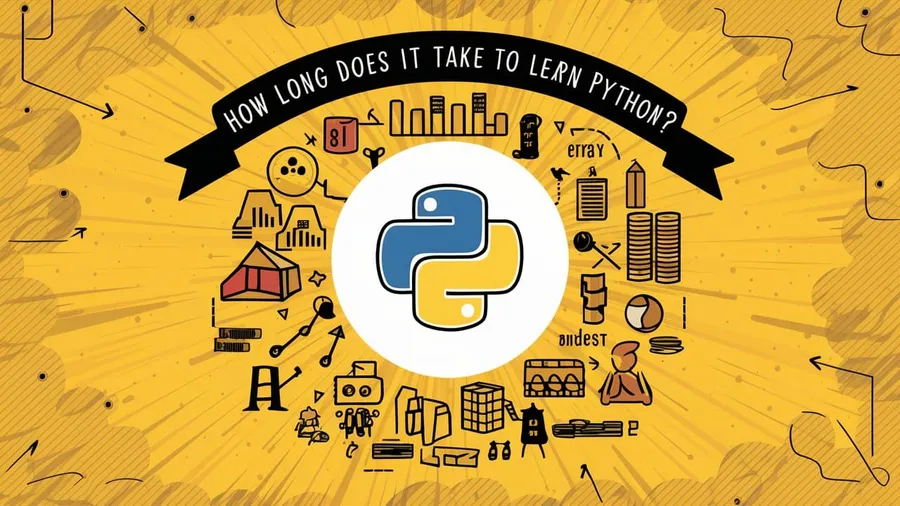
How long does it take to learn Python?
Coming from any background, the thought of coding used can scare you. Yet, curiosity is pushing you to learn Python (which sounded more like a pet snake than a programming tool).
What is Python?
Python is a high-level programming language that is easy to learn and use. It is widely used in web development, data analysis, artificial intelligence, and scientific computing. Python is known for its simplicity and readability, making it an excellent choice for beginners.
Why learn Python?
Python is a versatile language that can be used for a wide range of applications. Here are some reasons why you should learn Python:
-
Easy to learn: Python has a simple and clean syntax that is easy to read and write. This makes it an excellent choice for beginners who are new to programming.
-
Versatile: Python can be used for a wide range of applications, including web development, data analysis, artificial intelligence, and scientific computing.
-
In-demand skills: Python is one of the most popular programming languages in the world. Learning Python can open up a wide range of job opportunities in various industries.
-
Community support: Python has a large and active community of developers who are always willing to help. There are plenty of online resources and tutorials available to help you learn Python.
How long does it take to learn Python?
The time it takes to learn Python depends on several factors, including your background, the amount of time you can dedicate to learning, and your learning style. Here are some general guidelines to help you estimate how long it might take you to learn Python:
-
Beginner: If you are new to programming, it may take you a few weeks to a few months to learn the basics of Python. You can start by learning the syntax, data types, and control structures of Python.
-
Intermediate: If you have some programming experience, you may be able to learn Python in a few weeks. You can focus on more advanced topics such as object-oriented programming, data structures, and algorithms.
-
Advanced: If you are an experienced programmer, you may be able to learn Python in a few days. You can explore more advanced topics such as web development, data analysis, and machine learning.
How to learn Python?
There are many resources available to help you learn Python, including online tutorials, books, and courses. Here are some tips to help you get started:
-
Online tutorials: There are many free online tutorials available that can help you learn Python. Websites like Codecademy, Coursera, and Udemy offer courses that cover the basics of Python.
-
Books: There are many books available that can help you learn Python. Some popular books include “Python Crash Course” by Eric Matthes and “Automate the Boring Stuff with Python” by Al Sweigart.
-
Courses: There are many online courses available that can help you learn Python. Websites like Coursera, Udemy, and edX offer courses that cover a wide range of topics.
-
Practice: The best way to learn Python is to practice writing code. Try to solve coding problems, work on small projects, and participate in coding challenges to improve your skills.
Conclusion
Learning Python can be a rewarding experience that opens up a wide range of opportunities in the tech industry. Whether you are a beginner or an experienced programmer, Python is a versatile language that can help you achieve your goals. With the right resources and dedication, you can learn Python in a relatively short amount of time. So, what are you waiting for? Start learning Python today!
Start now
Ready to start learning Python? Check out these resources to help you get started:
About the author
Gianfranco is a software developer with over 10 years of experience. He is passionate about teaching others how to code and sharing his knowledge with the world. In his free time, he enjoys hiking, reading, and DJing.